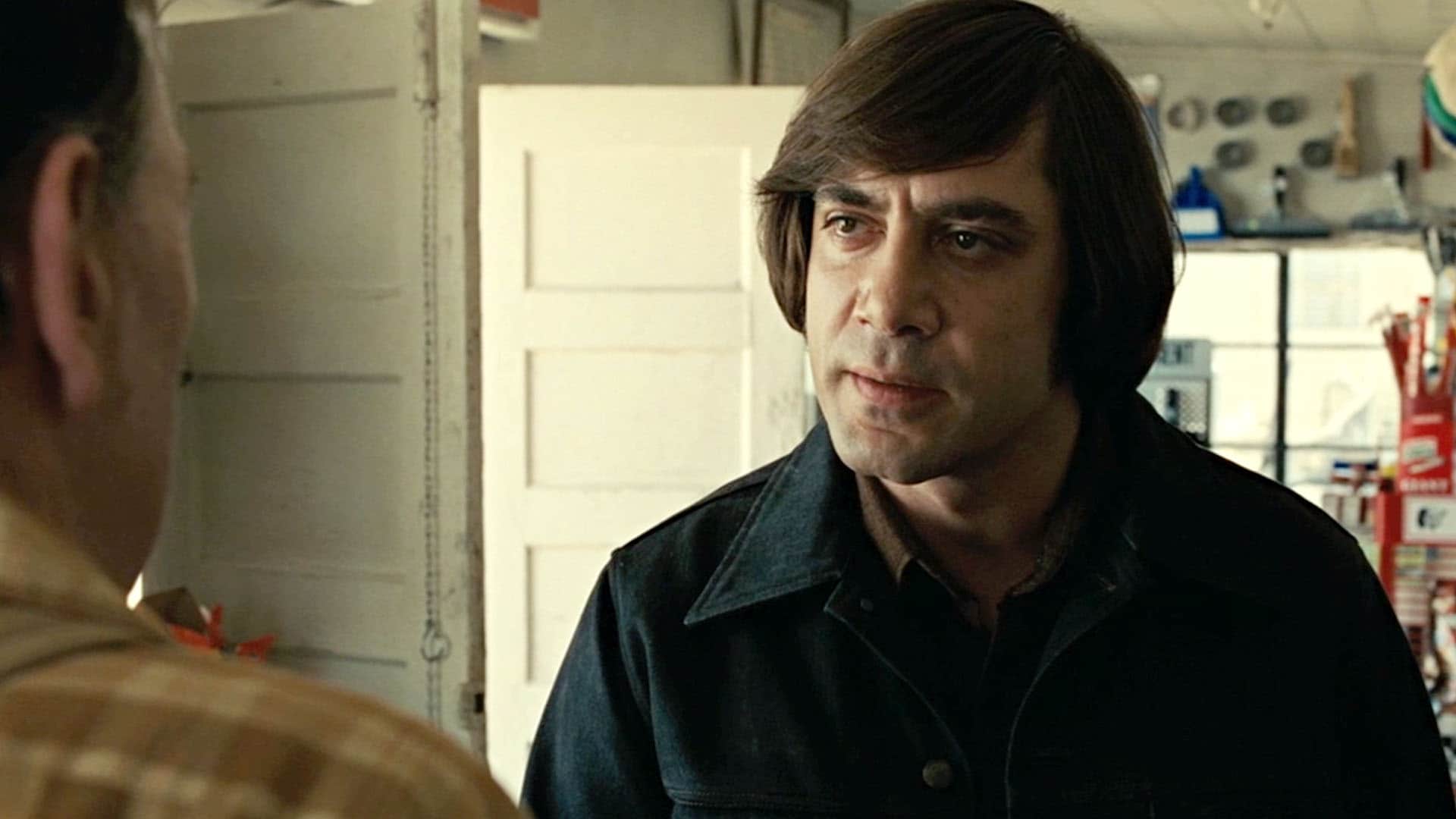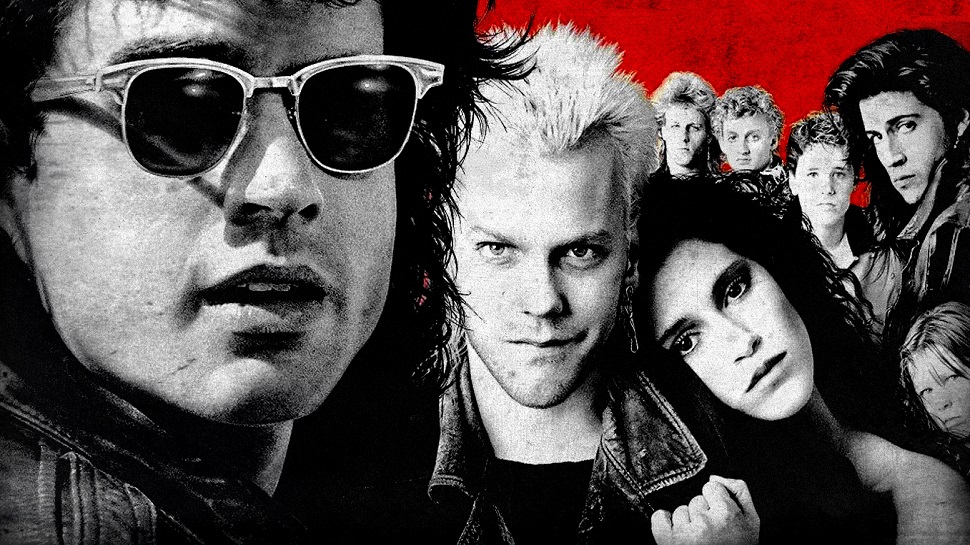Nearly everyone is familiar with the Coen Brothers’ uniquely cynical take on humanity, often looking at the average member of the human race with a self-superior contempt that manifests itself through absurdist comic beats that emphasize the idiocy of their subjects. But every once in a while, the Coens pull back on their ironic mockery to offer an unadulterated look at the human soul, a glimpse at their ethos that doesn’t rely on a wink and a nod to convince the average audience member to get on board with their conceits. Released ten years ago today, No Country for Old Men is just one of those films, and it succeeds not only as a superior entry to the Coen catalogue, but also as an achievement in filmmaking that is largely unrivaled in the 21st century.
No Country for Old Men draws its characters as broad representations of human morality, which makes them all the more compelling. We start the film with an introduction to Anton Chigurh (Javier Bardem), a hitman with a self-serving and cruel code of ethics that drives him to calculatingly murder his way across Texas. He kills without remorse, as every motion he makes is less about the lives he destroys than it is about the tools he could use to secure his own ends. The only times he kills for personal reasons are when his sense of propriety has been offended, such as when a gas station attendant shares details of his mundane life that bore and coolly outrage Chigurh. He’s a creature of silence and constant subsumed rage, and if you hear a sound anywhere in this film, you know it’s a moment of grave consequence.
The victim of that consequence is the morally gray Llewelyn Moss (Josh Brolin), an opportunist who takes a bag of money from a discovered drug transaction gone wrong. He isn’t a bad man in the sense that he wants to hurt anybody, but he is poor and wants to provide for his wife Carla Jean (Kelly Macdonald). He uses his guerrilla warfare training from Vietnam to stay one step ahead of Chigurh has the hitman hunts him down, and it’s only through some less than ethical tactics that Llewelyn is able to stay ahead. Llewelyn lets Chigurh come to confrontation with other pursuers in the interest of his own survival, and people die so that he can keep his monetary gain. Even when his own life is placed in mortal peril, he clings to the cash as a last hope for a brighter future, but that hope is what leads to his own destruction when Chigurh finally tracks him down and kills him.
And through all this, we see the aftermath through the eyes of Sheriff Ed Tom Bell (Tommy Lee Jones), who is on the verge of retirement after a long career of investigating bad guys. He’s tired of the uphill battle that evil always presents, and though he wants to step away from the game, he can’t help but feel that his work is unfinished. Through Bell we learn some fundamental truths of goodness, at least in its fight against the darkest of evils. First, goodness can only ever be reactionary, hoping to make whole the wrongs of the past while investigating and punishing for those it cannot retroactively correct. Second, and probably more important, is that being moral requires work and sacrifice, and it’s a job that will tear a person up after a lifetime of aspiring above the baseness of humanity. Bell spends the film ruminating on previous generations and how they would deal with the evils of the modern day, but he can only ever come to the conclusion that there was never any more or less evil in the world, just a fluctuation in the people willing to combat it.
And that’s the bleak note that the Coens leave us with in No Country for Old Men. Chigurh gets away, Llewelyn and Carla Jean are murdered for their trouble, and Bell leaves the case unresolved. In the end, nothing that Bell will do can bring Chigurh’s victims back from the grave, and Chigurh is wily and clever enough to never face justice for his crimes. Evil triumphs over good because good has been worn down after years on the front lines. We only have an off-screen hope of future generations to take up the mantle. Ten years later, I’m curious whether the Coens feel the newer generations have stepped up.













